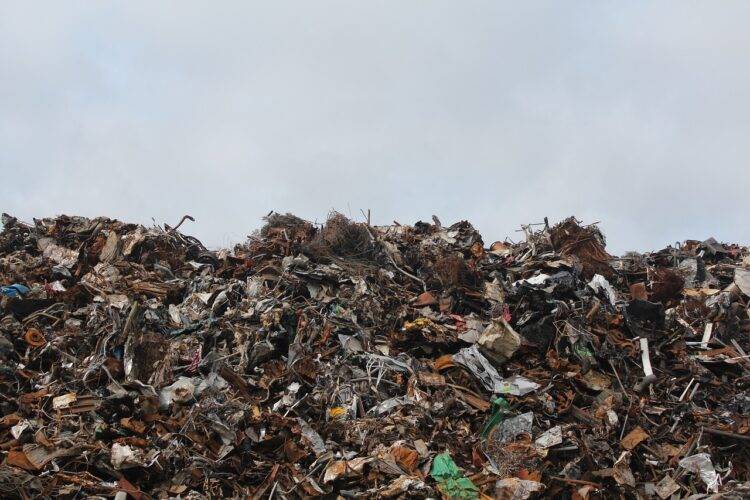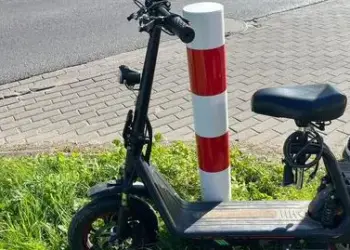“Germany has failed to fulfill its obligations under waste transfer regulations,” the European Commission announced in a reasoned opinion published on Wednesday. The matter pertains to a case initiated by Poland against its western neighbor. However, the Commission is unable to determine Germany’s breach in some areas as indicated by the Polish side. “We demand that the authorities in Berlin collect the remaining waste in the coming days,” Minister of Climate and Environment, Anna Moskwa, announced on the X platform.
The complaint against the Germans related to a total of 35 thousand tons of waste, which arrived in the country in various years from 2015-2018 in the provinces of: Lower Silesia, Lubusz, Silesia and Greater Poland, which are all close to the Polish-German border.
Poland accuses Germany – firstly – of violating the obligations of the waste transfer regulation, and – secondly – of lacking cooperation contrary to the fourth article of the EU Treaty, which requires “scincere cooperation between the Union and its Member States”, which “mutually respect each other and mutually support each other in performing tasks arising from the treaties.”
As reported by the Polish government, for example, in Gliwice there are 1300 tons of waste overdue, in Babina – 450 tons, in Sarbia – 8700 tons, Sobolewo – 3360 tons, Stary Jawor – 1156 tons, and in Tuplice – 20000 tons of waste from Germany. They were supposedly imported with false documents as “green waste”, or suitable for recycling, when in reality they were meant to be municipal waste.
The dispute concerns Germany not collecting the waste that was illegally exported to Poland, although such an obligation is enshrined in EU law. Representatives of Olaf Scholz’s government, also during a clarifying meeting in Brussels in September, did not deny certain cases of waste forgery. However, they argued that the matter of collecting waste from Poland to Germany should be enforced by the authorities of the federal german states on individual companies involved in this procedure.
Anna Moskwa, the Minister of Climate and Environment, openly expresses her satisfaction with the feedback given by the European Commission, which she shared on platform X.
“Germany must remove the illegally stored garbage in Poland! The European Commission sides with Poland in the dispute with Germany,” announced on Wednesday Anna Moskwa, the head of the Ministry of Climate and Environment. “We demand that the authorities in Berlin collect the leftover waste in the coming days,” she emphasized.
If the German side does not take waste from Poland, the next step is to submit a request for cleaning up to the Court of Justice of the European Union (CJEU).
The EC reminded that in the proceedings initiated by Poland against Germany under Article 259 of the Treaty on the Functioning of the EU, regarding the illegal transfer of waste from Germany to Poland, our country indicated that Germany “violated Article 24(2) and Article 28(2) of Regulation No. 1013/2006 on waste shipments, refusing to accept waste illegally transferred from Germany to seven different places in Poland”.
In its opinion, the Commission found that “Germany failed to meet its obligations under Art. 24, paragraph 2 of the regulation, by not collecting waste within 30 days from one location (Tuplice) and to some extent not collecting waste from another location (Stary Jawor).”
However, the European Commission did not agree with all the complaints of Poles against Germans.
“This last conclusion only applies to displacements organized by certain operators, specifically those who seemed to be aware that the waste recipient did not have appropriate permissions for waste management. Regarding Poland’s allegations of violation of Art. 24, clause 2, of the regulation in relation to other displacements to Stary Jawor and displacements to other locations, in light of the lack of clear facts and sufficient evidence confirming the illegality of the displacements, the Commission is unable to determine Germany’s infringement. Furthermore, the Commission believes that Poland’s claim that Germany violated Art. 28, clause 2, of the regulation by not accepting the waste classification, is unfounded” – according to the opinion of the European Commission.
The Commission additionally observed that the collaborative efforts between the parties in determining facts and arriving at mutually agreeable solutions were not always at their best. Nevertheless, the Commission did not succeed in identifying any violation by Germany of the treaty’s principle of sincere cooperation.
Poland may refer the case to the CJEU.
Article 259 of the Treaty allows a member state, which believes that another member state has failed to fulfill one of the obligations incumbent upon it under the Treaties, to bring the matter before the Court of Justice of the European Union.
Before this happens, the member state must bring the matter to the European Commission, which issues a reasoned opinion after allowing both sides to present their comments. Poland filed a complaint with the Commission on July 26, 2023, and Germany submitted its comments in writing on September 7, 2023. The Commission heard both Poland and Germany during a clarifying meeting, which took place on September 20, 2023. After adopting a reasoned opinion, Poland can decide to refer the matter to the CJEU.


















